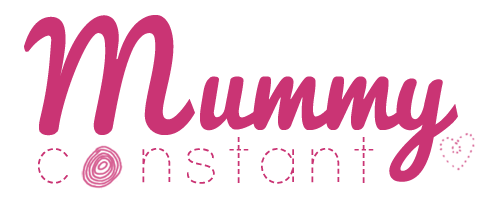Cold sores, also called oral herpes or fever blisters, are small blisters that form on and around the lips, cheeks, chin, and nose. The blisters usually develop within 6 to 48 hours and may pop after a few days. They then turn into a crust and ultimately heal in one to two weeks.
Causes of Cold Sores
Despite the name, cold sores are not caused by colds. In children, the condition is caused by the herpes simplex virus type 1 (HSV-1). This virus is different from the herpes simplex virus type 2 (HSV-2), which causes lesions in the genital area called genital herpes. However, both virus types can cause sores in any part of the body.
Most kids are first exposed to the virus when they are between one to five years of age and may get infected by the virus occasionally. This is because even after the sores dry up and heal, the virus lies dormant in the nerve cells until something triggers its activation.
How Do Kids Get Cold Sores?
The virus that causes cold sores is highly infectious. It spreads through skin-to-skin contact, saliva, or sharing objects with someone infected by the virus – such as kissing an infected person, or sharing utensils, towels or razors. The virus usually enters the body through a break in the skin. A parent with a cold sore can easily spread the virus to his or her child in this way.
Symptoms of Cold Sores in Children
Symptoms vary from one child to another. Some kids don’t have any symptoms with the first infection of the virus, while others may have severe flu-like symptoms and ulcers around the mouth and on the lips during the primary infection. After the first infection, symptoms of cold sores are usually not severe.
The most common symptoms of the condition include:
- Tiny blisters on and around the lips
- Swollen and tender lymph glands
- Fever
- Sore throat
- Irritability and drooling
- Tingling, itching, and soreness of the lips and mouth that can last up to a week
Sometimes, the symptoms are so mild that parents may not notice any of them.
Triggers of Cold Sores
As mentioned earlier, the herpes simplex virus type 1 lies dormant in kids who were once infected until something triggers it. The condition is more likely to return when the skin becomes irritated or when the immune system is weak.
Common triggers include:
- Stress and fatigue
- Illness like flu or cold
- Poor diet and dehydration
- Exposure to too much heat, sunlight or cold
How to Treat Cold Sores in Children
There is currently no cure for cold sores, but the good thing is that they usually heal on their own within two weeks. Cold sore treatment options like pills, ointments and skin creams do not treat the condition but can speed up the healing time and ease uncomfortable symptoms like painful blisters.
While there is no cure for cold sores, there are several things parents can do to prevent the spread of the infection, relieve discomfort during a flare-up, and avoid possible triggers.
Here’s what parents can do to:
Stop the spread.
- Prevent the kid from picking or scratching the blisters.
- Don’t let an infected child share utensils, drinks, toothpaste, towels, and other items to avoid spreading the virus. Be sure to wash items in hot water after use.
- Keep your kid home if they are having their first outbreak or experiencing severe symptoms.
Ease discomfort.
- Apply a warm washcloth or cold compresses to ease discomfort
- Give your child chilled foods and drinks to avoid dehydration and soothe their lips.
- For severe symptoms, ask your pediatrician to prescribe a pain reliever such as ibuprofen or acetaminophen. A prescription anti-viral cream or an over-the-counter cream can ease symptoms and shorten outbreaks.
Avoid recurrence
- Ensure your child eats a balanced diet and gets enough sleep and exercise.
- Make sure your kid uses lotion before heading outdoors to avoid skin irritation.
I hope these tips help to combat any cold sores in your children. Isla had them really badly after a cold, it isn’t nice seeing your little ones in distress or poorly. If you have any other tips I would love to hear about them in the comments below.










Lorna Ledger
Saturday, January 25, 2020This is a daft story, but I got my first cold sore from our family dog aged 10! My mum had a cold sore and she used to “kiss” the dog, but not us (so not to spread it)….well I got one too, and a few days later , we worked out how when our dog patch had a little blister on his muzzle!
Joanie S
Saturday, January 25, 2020great post – thanks for the tips – cold sores are very irritating
Susan Mann
Sunday, January 26, 2020Great post. My daughter has one just now x